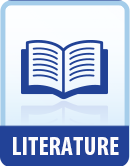|
This section contains 257 words (approx. 1 page at 400 words per page) |

|
Perfect Light Summary & Study Guide Description
Perfect Light Summary & Study Guide includes comprehensive information and analysis to help you understand the book. This study guide contains the following sections:
This detailed literature summary also contains Bibliography on Perfect Light by Ted Hughes.
What astounds many readers about Ted Hughes's Birthday Letters (1998) is the tender, honest, and confessional voice that rises from the poems. Hughes is known for his emotional detachment from the situations about which he wrote, an aloofness of voice that reveals little about his speaker's sentiment and even less about his own. His language is often harsh and explicit in describing violence, whether in the natural world of animals or in human society, and his subjects avoid personal experience, particularly any overt reference to his wife, fellow poet Sylvia Plath. But then he published an entire book written in memory of her.
Birthday Letters includes eighty-eight poems composed over a twenty-five- to thirty-year period, and traces the couple's brief but saturated life together, from the first date and marriage to separation and suicide. Some of the poems are thought to have been inspired by specific letters and photographs of Plath that Hughes rediscovered while preparing her papers for sale to Smith College. "Perfect Light" is one such poem.
Based on a 1962 photo of Plath in a field of daffodils holding their two children, "Perfect Light" describes the physical scene and ends with an ominous metaphor suggesting the mother's inescapable fate. With atypical softness and sentimentality, Hughes addresses Plath directly as the "you" in the poem, portraying her in angelic terms and comparing her innocence to that of the children, before concluding that such a blissful moment was doomed to fade into a "perfect light." Birthday Letters is the only collection in which this poem appears.
Read more from the Study Guide
|
This section contains 257 words (approx. 1 page at 400 words per page) |

|



